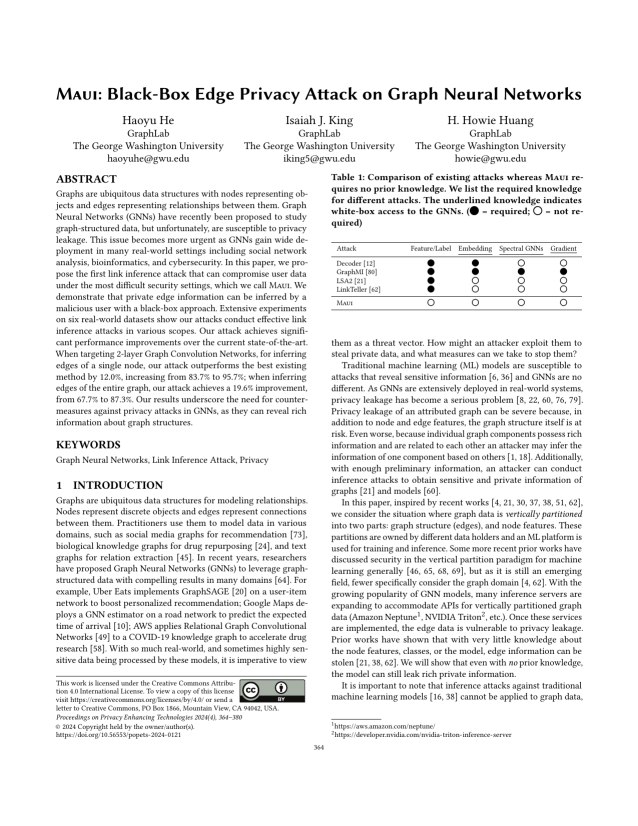Maui: Black-Box Edge Privacy Attack on Graph Neural Networks
Authors: Haoyu He (The George Washington University), Isaiah J. King (The George Washington University), H. Howie Huang (The George Washington University)
Volume: 2024
Issue: 4
Pages: 364–380
DOI: https://doi.org/10.56553/popets-2024-0121
Abstract: Graphs are ubiquitous data structures with nodes representing objects and edges representing relationships between them. Graph Neural Networks (GNNs) have recently been proposed to study graph-structured data, but unfortunately, are susceptible to privacy leakage. This issue becomes more urgent as GNNs gain wide deployment in many real-world settings including social network analysis, bioinformatics, and cybersecurity. In this paper, we propose the first link inference attack that can compromise user data under the most difficult security settings, which we call Maui. We demonstrate that private edge information can be inferred by a malicious user with a black-box approach. Extensive experiments on six real-world datasets show our attacks conduct effective link inference attacks in various scopes. Our attack achieves significant performance improvements over the current state-of-the-art. When targeting 2-layer Graph Convolution Networks, for inferring edges of a single node, our attack outperforms the best existing method by 12.0%, increasing from 83.7% to 95.7%; when inferring edges of the entire graph, our attack achieves a 19.6% improvement, from 67.7% to 87.3%. Our results underscore the need for countermeasures against privacy attacks in GNNs, as they can reveal rich information about graph structures.
Keywords: Graph Neural Networks, Link Inference Attack, Privacy
Copyright in PoPETs articles are held by their authors. This article is published under a Creative Commons Attribution 4.0 license.

